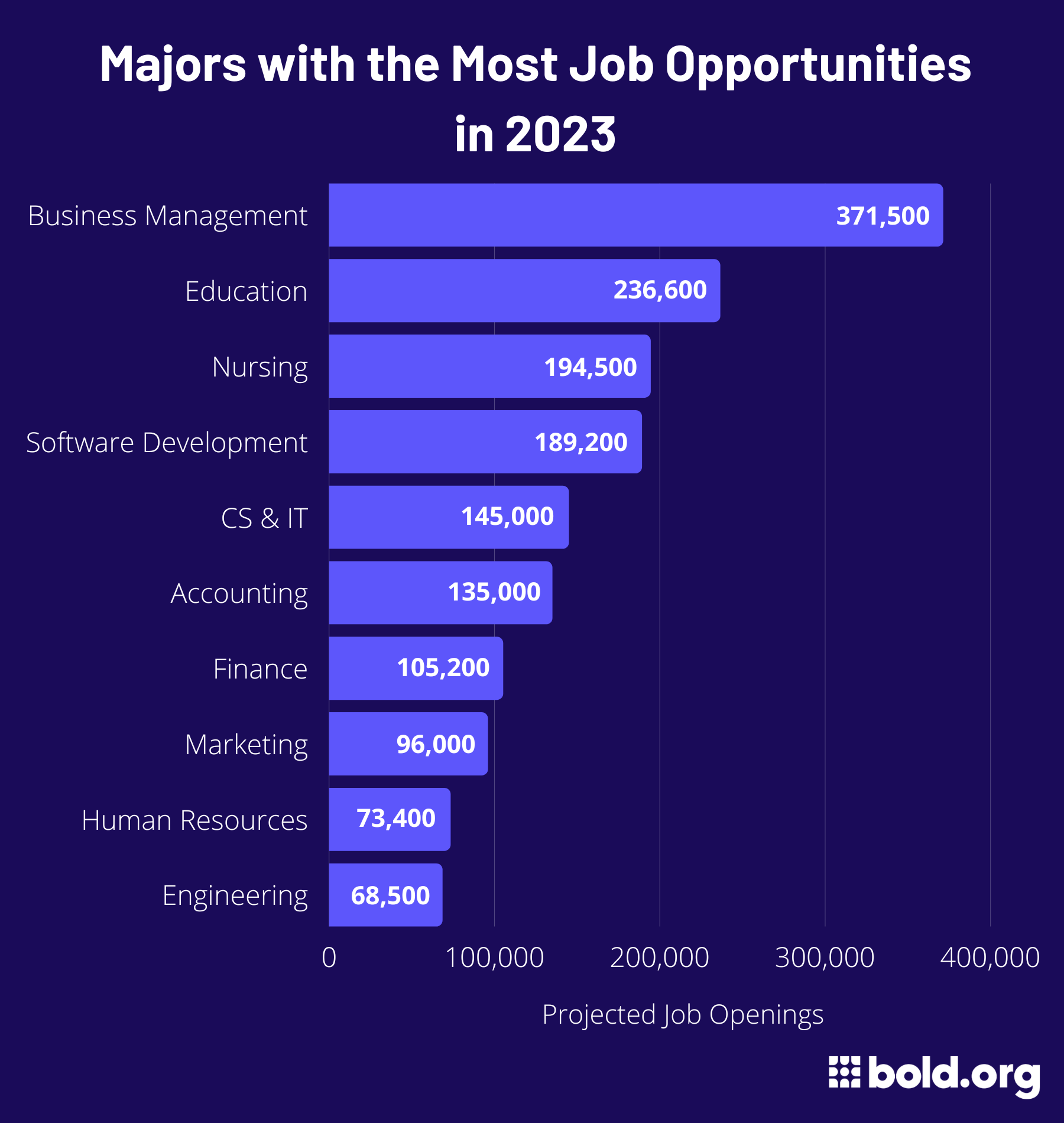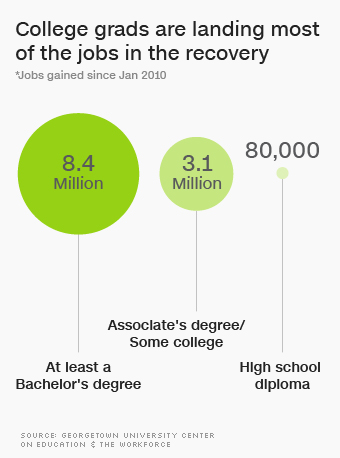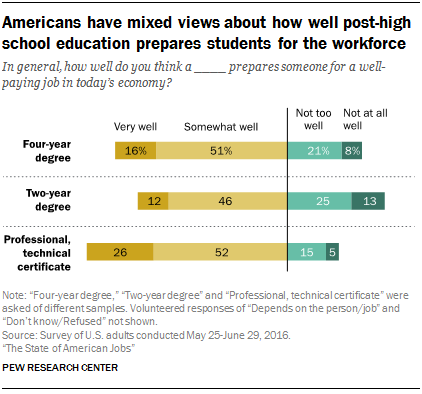College education often expands career options and enhances job prospects. Many employers seek college graduates for their skills and knowledge base.
Attending college is a significant step that can transform your career landscape. A degree can serve as a key to unlock doors to numerous professions, some of which are inaccessible without higher education credentials. Employers typically see college graduates as candidates who have acquired a certain level of expertise and critical thinking skills necessary for today’s dynamic job market.
A well-rounded college experience doesn’t just impart academic knowledge; it also develops soft skills like communication, problem-solving, and teamwork, which are invaluable in any workplace. While not every job requires a college degree, postsecondary education can be a powerful asset in increasing both the quantity and quality of employment opportunities available to an individual. The investment in higher education can indeed pay off by opening up a wider array of career paths and potentially leading to higher earning potential over a professional lifetime.

Credit: bold.org
The Changing Landscape Of Higher Education And Employment
The job market is always changing. New careers pop up as technology grows. This makes some older jobs less needed. A college degree can open many doors. It shows you worked hard and learned a lot. This helps in fields where expertise is key.
Yet, not all jobs want a degree. Skills can be just as important. Some people learn these skills without college. They use online courses or real-life experience. This way, they can also get great jobs. But, many employers still look for a college degree. They think it means a person is ready for tough tasks.
So, a college degree can increase job chances. Yet, it is not the only way. It’s about what you can do and how well you can do it. Learning never stops, in or out of college. This is true now more than ever.
Statistical Correlation Between College Degrees And Employment Rates
Strong evidence links college degrees to higher employment rates. Data reveal that college graduates often experience lower unemployment than those without degrees. This trend persists across various industries and time periods.
Individuals with higher education tend to secure jobs more easily. Their job opportunities usually surpass the options available to non-graduates.
| Educational Level | Unemployment Rate | Median Income |
|---|---|---|
| High School Diploma | 3.7% | $30,000 |
| Bachelor’s Degree | 2.5% | $50,000 |
| Graduate Degree | 1.6% | $70,000 |
Higher educational attainment typically results in greater income. The table highlights clear income gains with each advanced educational milestone.
Professional Paths: Specialized Fields And The College Advantage
College degrees open doors in STEM fields—science, technology, engineering, and mathematics. These areas often require an advanced skill set that colleges provide. Technical positions, for instance, demand a deep understanding of complex concepts. Such jobs typically list a bachelor’s or higher degree as a prerequisite. Experts note an increasing trend towards credentialism.
Employers in high-skill industries view college education as a basic filter for job applicants. This is the gatekeeping effect of college degrees. Without a degree, even qualified candidates may not pass the first stage of a job application. This barrier underscores the importance of a college education for career success in certain areas.
The Skills Gap: Bridging Education And Practical Experience
College curricula often focus on academic knowledge, leaving practical experience on the sideline. This leads to a skills gap as graduates enter the workforce. A solution is to embed internships and co-op programs into college studies.
These hands-on opportunities align educational frameworks with the actual job market demands. They provide real-world exposure to students, making them more job-ready. Employers favor candidates with both theoretical knowledge and practical skills.
| Program Type | Benefits |
|---|---|
| Internships | Real-world skill application, Networking opportunities |
| Co-op Programs | Extended job training, Potential for job offers |
Alternatives To Traditional College Education
Trade schools and apprenticeships offer hands-on training for specific jobs. Unlike traditional four-year colleges, these programs focus on practical skills.
Many industries highly value such targeted education. Skilled trades can lead to stable and well-paying careers. Electricians and plumbers are two examples.
The online learning revolution has introduced many certifications and microcredentials. These are short, affordable learning paths. Big companies recognize them.
Fields like IT, marketing, and design often find online badges sufficient. They show skill mastery. Some might argue they are as good as degrees for certain jobs.

Credit: money.cnn.com
Personal Growth And Networking: The Intangible Benefits Of College
College life isn’t just about academics; it’s a hub for building relationships and growing networks. These connections can play a crucial role in future career paths. Interaction with diverse groups aids in developing vital interpersonal skills.
Students engage in various group projects and extracurricular activities. They learn teamwork, communication, and problem-solving skills. These are key attributes employers seek. The college environment also fosters personal growth. Students gain confidence and maturity as they navigate academic and social challenges. This process builds a strong foundation for professional life.

Credit: www.pewresearch.org
Frequently Asked Questions Of Does College Give You More Job Opportunities
Does A College Degree Give You More Opportunities?
A college degree often opens doors to specialized career paths and higher-paying job opportunities. It can also enhance a candidate’s resume and skill set.
Does College Increase Your Chances Of Getting A Job?
Attending college typically boosts job prospects by providing specialized knowledge and critical skills employers value. It also often expands professional networks, making job hunting easier.
How Does College Get You A Better Job?
College provides specialized knowledge and skills that align with industry requirements, enhancing employability. It also offers networking opportunities and access to career services for job placement support.
What Are 5 Benefits Of Going To College?
1. College graduates typically enjoy higher earning potential. 2. Degrees open doors to advanced career opportunities. 3. College education often leads to better job security. 4. Higher education expands professional networks. 5. College exposes students to diverse ideas and cultures.
Conclusion
Exploring the link between higher education and job prospects reveals a clear trend. College degrees often unlock doors to advanced careers and higher earning potential. Yet, not all paths require a diploma. Weigh personal goals and industry demands before deciding.
Education is a powerful tool, but it is one of many in your arsenal for success.

